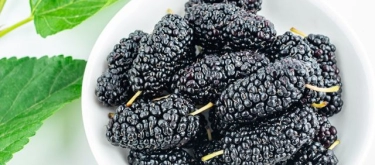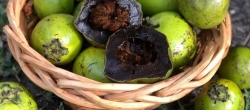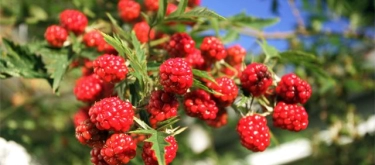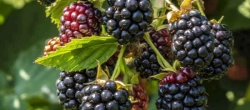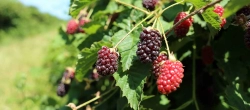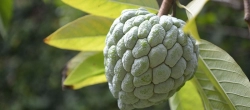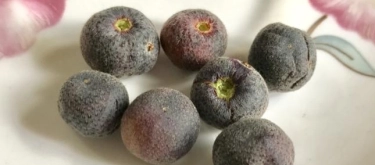Black raspberries: Taste, Uses, Benefits and Harm
Black raspberries, native to North America, are often mistaken for blackberries but are a distinct variety of raspberry. Known for their deep, almost black color and slightly sweeter taste compared to red raspberries, black raspberries are celebrated for their rich flavor and high antioxidant content. They’re used in both fresh and cooked applications, enhancing a range of sweet and savory dishes.
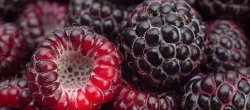
Primary Flavor Characteristics
Black raspberries have a sweet-tart flavor with a slight earthiness and rich berry undertones. Compared to red raspberries, black raspberries are less tangy and have a more complex sweetness, making them particularly enjoyable fresh or in desserts.
Aromatic and Taste Nuances
Black raspberries have a fruity aroma with faint floral notes and a subtle earthiness. The taste is mildly sweet with a slightly tart edge, giving them a balanced profile that is both refreshing and rich.
Scientific Description of Taste and Aroma
- Aroma: Fruity and floral, with subtle earthy hints.
- Taste: Sweet, mildly tart, with berry and earthy undertones.
- Texture: Juicy and slightly seedy, with a tender structure.
In-Depth Flavor Analysis of Black Raspberry
Underlying Flavor Notes
Black raspberries have a multi-layered flavor profile with distinct notes:
- Sweetness: A gentle, natural sweetness that is less sharp than red raspberries.
- Berry Undertones: A strong berry flavor that is richer than red raspberries, with a smooth taste.
- Mild Tartness: A faint tartness adds balance, enhancing the overall complexity.
- Earthy Hints: Slight earthiness, particularly in wild varieties, adds depth to the flavor.
Impact of Ripeness on Flavor
- Unripe Black Raspberry: Tart and slightly bitter, with less sweetness.
- Ripe Black Raspberry: Juicy, with a balanced sweet-tart flavor and enhanced berry richness.
- Overripe Black Raspberry: Intensely sweet, best used in sauces or jams.
Textural Qualities
Black raspberries have a juicy, tender texture with small edible seeds that add a slight crunch. Their soft structure makes them ideal for both fresh eating and cooking.
Culinary Uses of Black Raspberry
Primary Uses
- Fresh Eating: Black raspberries are delicious when eaten fresh, providing a sweet, juicy snack.
- Desserts and Baked Goods: Black raspberries are used in pies, tarts, cobblers, and cakes for their deep color and rich flavor.
- Jams and Preserves: The natural pectin in black raspberries makes them ideal for homemade jams and preserves.
- Smoothies and Beverages: Black raspberries add a fruity, vibrant note to smoothies, juices, and cocktails.
- Sauces and Condiments: Black raspberries can be cooked down into sauces for meats or used as a topping for pancakes and waffles.
Ideal Pairings for Black Raspberry
- Citrus Fruits: Lemon and orange enhance the brightness of black raspberries and balance their sweetness.
- Dark Chocolate: The slight bitterness of dark chocolate complements the sweet-tart flavor of black raspberries.
- Herbs: Mint and basil add freshness, balancing the sweetness in salads and desserts.
- Vanilla: The smooth, creamy flavor of vanilla enhances black raspberries in baked goods and desserts.
- Nuts: Almonds and walnuts add a crunchy texture that complements black raspberries in salads and pastries.
Health Benefits of Black Raspberry
Key Nutrients and Benefits
- High in Antioxidants: Black raspberries are rich in antioxidants, including anthocyanins, which help protect cells from oxidative damage.
- Dietary Fiber: The fiber in black raspberries supports digestion, heart health, and blood sugar control.
- Low in Calories: Black raspberries are low in calories, making them a nutritious, weight-friendly option.
- Vitamins and Minerals: Black raspberries are a good source of vitamin C, vitamin K, and manganese, supporting immunity and bone health.
- Potential Cancer-Fighting Properties: Some studies suggest that black raspberries may have compounds that help reduce the risk of certain cancers.
Potential Precautions
- Seed Sensitivity: The small seeds in black raspberries may be difficult to digest for some people.
- Natural Sugars: Though black raspberries are low in sugar, moderate consumption is advised for those monitoring blood sugar levels.
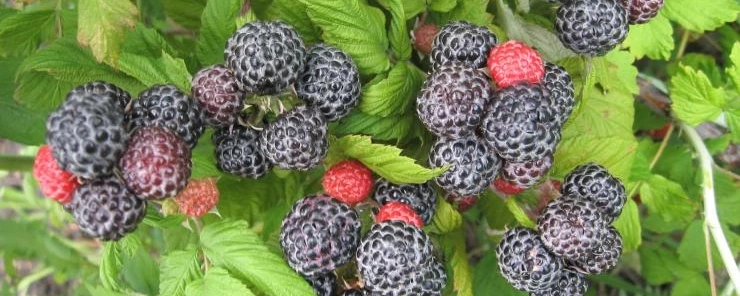
Tips for Choosing and Storing Black Raspberry
How to Choose Quality Black Raspberries
- Color and Firmness: Look for firm, deep purple-black berries with no signs of mushiness.
- Aroma: Fresh black raspberries should have a mild fruity aroma.
Storage Recommendations
- Refrigeration: Store black raspberries in the refrigerator and consume within a few days for optimal freshness.
- Freezing: Black raspberries can be frozen for later use, making them suitable for smoothies and baking.
Fun Facts About Black Raspberry
- Rare Find: Black raspberries are less common than red raspberries and are often more expensive due to limited availability.
- High in Anthocyanins: The dark color of black raspberries is due to anthocyanins, powerful antioxidants that may help reduce inflammation.
- Wild Varieties: Black raspberries grow wild in many areas, and foraging for them is popular in certain regions.

